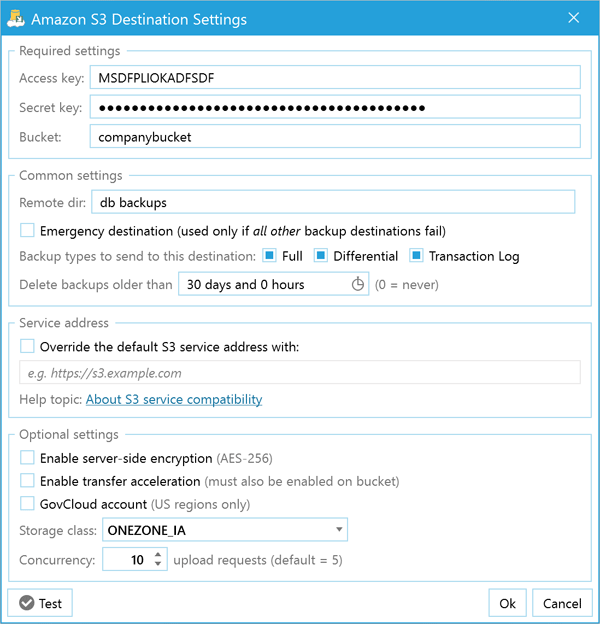BACK UP SQL TO AMAZON S3
SQL Backup Master allows you to back up your SQL Server databases to the reliable, secure, and highly scalable Amazon S3 service.

Advanced features include support for server-side encryption, transfer acceleration, various storage classes, and much more. Amazon S3 offers industry-leading durability with 99.999999999% (11 nines) data durability, ensuring your SQL Server backups are protected with multiple redundant copies across different availability zones. SQL Backup Master takes full advantage of Amazon S3's capabilities, allowing you to choose between various storage classes to optimize costs based on your backup retention requirements.
With Amazon S3 as your backup destination, you gain access to enterprise-grade infrastructure without the capital expense of maintaining your own off-site storage facility. The service automatically handles failover and recovery, providing peace of mind that your critical SQL Server data is protected. SQL Backup Master's integration with Amazon S3 includes support for S3-compatible services as well, giving you flexibility in choosing your storage provider while maintaining the same reliable backup workflow.
Related article: How to back up SQL Server databases to Amazon S3

